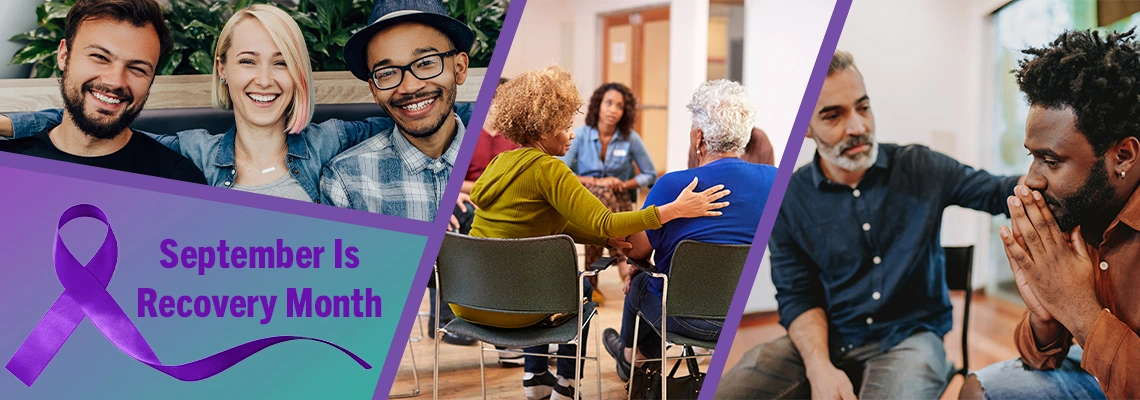
Foundation Connections

Recovery is for Everyone
Published 9/26/2023
Mental health and substance use disorders do not affect everyone equally, and each person’s journey is different. They affect people no matter their ethnicity, age, gender, geographic location, and socioeconomic level.
The yearly observance of Recovery Month in September explores how integrated care, a strong community, sense of purpose, and leadership contribute to effective treatments that sustain the recovery of persons with mental and substance use disorders. It is a time to celebrate individuals living in recovery and recognize the dedicated workers who provide the prevention, treatment, and recovery support services that help make recovery possible.
The recovery journey isn’t just for the individual, it includes everyone who cares about them. Social connections, family support, and neighborhood relationships are linked to wellness and recovery by supporting individuals who are already in recovery or are seeking to start their recovery journey. Peer support and peer support services are important in guiding individuals, families, and others through the recovery process.
Recovery has many pathways that may include clinical, non-clinical, and self-management. They may also utilize multiple paths at the same time. This is where mental health counseling can greatly contribute to the process. Educating yourself and others about recovery, treatment options and techniques, and strategies is crucial to the management of recovery for individuals and those who care about them. Connecting with local providers and recovery support services that treat mental health, substance use, and co-occurring disorders can not only significantly increase your knowledge of treatment techniques, but also the recovery resources you can provide when additional support is needed. Below are a few resources that can help you get started; however, this is not a comprehensive list, and we encourage you to research other resources.
- Recovery and Recovery Support (SAMHSA)
- Treatment Options (SAMHSA)
- Drug Overdose Strategies and Resource Center (CDC)
- National Institute on Drug Abuse (NIDA)
- The Association for Addiction Professionals (NAADAC)
- Find Support: Learn about pathways to recovery (FindSupport.gov)
Individuals in recovery need to know help is available. They can get better, both physically and emotionally, with the support of a welcoming community.
If you or someone you know is struggling, call or text #988 or chat at 988lifeline.org.

